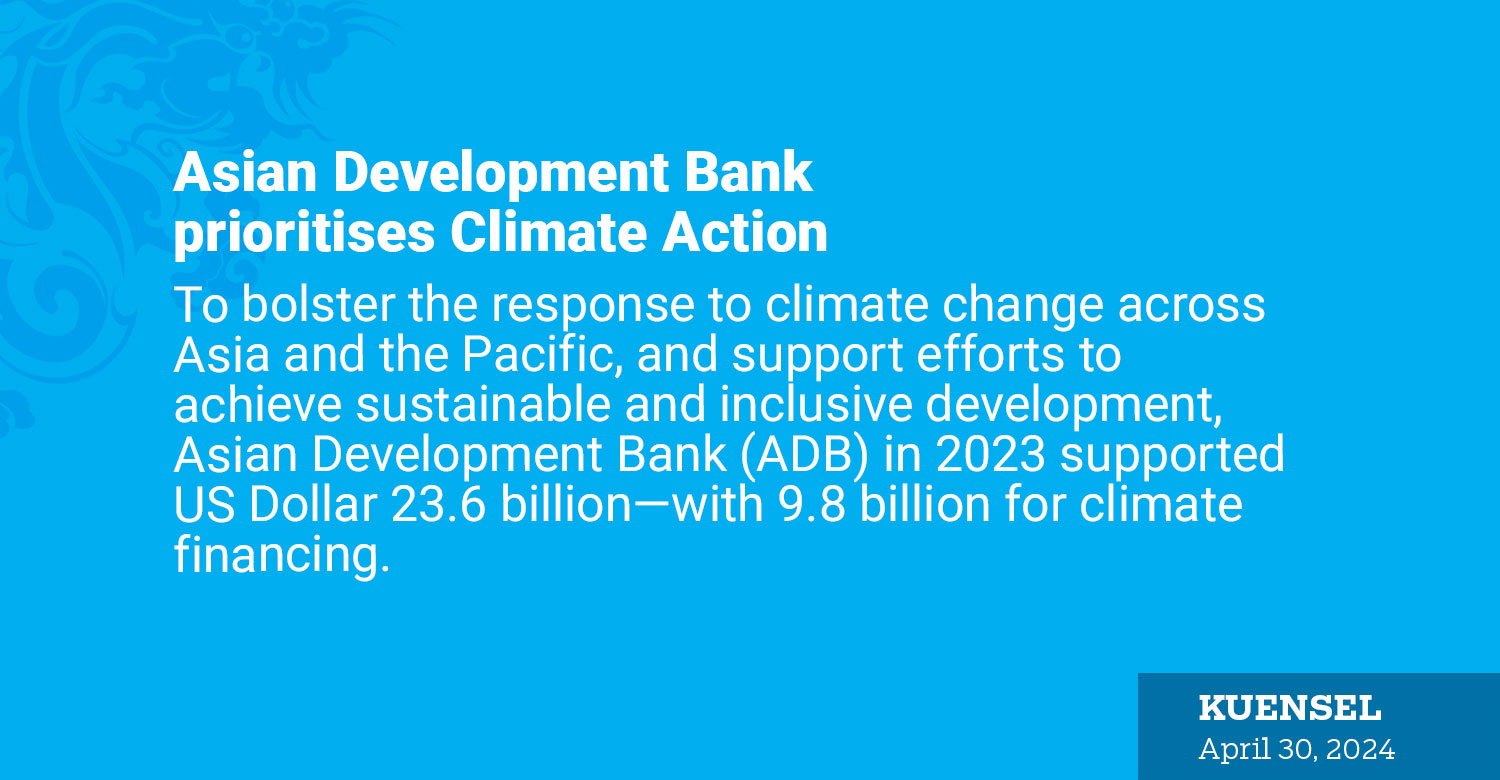
…USD 23.6 billion committed in 2023
To bolster the response to climate change across Asia and the Pacific, and support efforts to achieve sustainable and inclusive development, Asian Development Bank (ADB) in 2023 supported US Dollar 23.6 billion—with 9.8 billion for climate financing.
As per the ADB’s annual report 2023 titled “Accelerating Climate Action for Sustainable Development”, launched recently, it is an increase from USD 6.7 billion in 2022.
The supports were through loans, grants, guarantees, equity investments, and technical assistance.
The ADB made significant climate investments in critical sectors such as transport (2.5 billion), agriculture (1.8 billion), and energy (1.9 billion).
ADB President, Masatsugu Asakawa, emphasised the institution’s role as the leading financier for climate action in the region.
“Our investments in adaptation and mitigation had a strong focus on climate-resilient agriculture, renewable energy and low carbon transport,” he said.
Moreover, he said, ADB leveraged an additional USD 16.4 billion in co-financing through robust partnerships, amplifying the impact of its initiatives.
According to the report, gender equality was one of the central focus of ADB’s operations, with initiatives aimed at reducing gender disparities and mitigating the disproportionate impacts of climate change on women.
“Nearly all of ADB’s activities in 2023 contributed to advancing gender equality, reaffirming its commitment to inclusive development,” the report stated.
In line with its evolution to accelerate progress towards the Sustainable Development Goals (SDGs), ADB implemented major capital management reforms to unlock up to USD 100 billion in new lending capacity over the next decade.
The report shows that the economic landscape across South Asia in 2023 reflected a mix of robust growth and moderation. “For example, India maintained its position as one of the fastest-growing economies globally, other countries experienced varying degrees of economic performance.”
Nonetheless, the challenges such as inflation, erratic monsoons, and energy shortages underscored the region’s vulnerability to climate change and emphasized the need for targeted investments in resilience-building measures.
To address specific challenges in member countries, ADB tailored interventions to tackle pressing issues.
In Bhutan, where youth unemployment reached alarming levels in 2022, ADB signed a USD 30 million loan agreement to enhance youth employability through skills training and infrastructure development.












